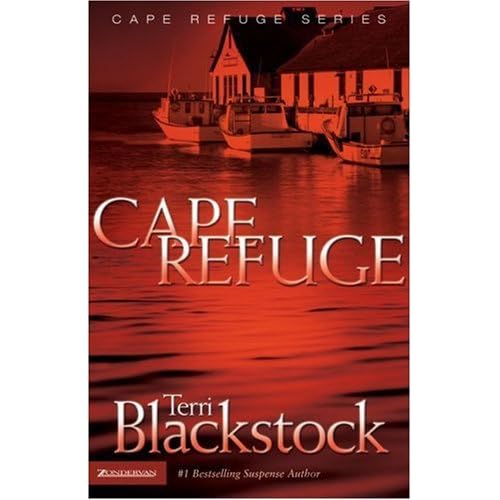The list is below, and I have highlighted those books I have already read. I am a bit disappointed that the titles starting with "The" are in the T-section, but we can't have it all. Overall, I was shamed by the number of books unread. I need to get on the stick!
Enjoy!
The List
- 1984 (George Orwell)
- A Confederacy of Dunces (John Kennedy Toole)
- A Heartbreaking Work of Staggering Genius (Dave Eggers)
- Mencken Chrestomathy (H.L. Mencken)
- A Month Of Sundays: Searching For The Spirit And My Sister (Julie Mars)
- A Passage to India (E.M. Forster)
- A Quiet Storm: A Novel (Rachel Howzell Hall)
- A Room of One’s Own (Virginia Woolf)
- A Separate Peace (John Knowles)
- A Tree Grows in Brooklyn (Betty Smith)
- American Tragedy (Theodore Dreiser)
- Anna Karenina (Leo Tolstoy)
- Anne Frank: The Diary of a Young Girl (Anne Frank)
- Atonement: A Novel (Ian McEwan)
- Autobiography of a Face (Lucy Grealy)
- Balzac and the Little Chinese Seamstress (Dai Kijie)
- Bee Season (Myla Goldberg)
- Bel Canto (Ann Patchett)
- Beloved (Toni Morrison)
- Beowulf
- Brave New World (Aldous Huxley)
- Brick Lane (Monica Ali)
- Catch-22 (Joseph Heller)
- The Collected Stories of Eudora Welty (Eudora Welty)
- Edgar Allan Poe: Complete Tales & Poems (Edgar Allan Poe)
- Cousin Bette (Honoré de Balzac)
- Crime and Punimensht (Fyodor Dostoyevsky)
- Daisy Miller (Henry James)
- David Copperfield (Charles Dickens)
- Dead Souls (Nikolai Gogol)
- Death of a Salesman (Arthur Miller)
- Demons (Fyodor Dostoevsky)
- Dr. Jekyll and Mr. Hyde (Robert Louis Stevenson)
- Eleanor Roosevelt (Blanche Wiesen Cook)
- Ella Minnow Pea: A Progressively Lipgrammatic Epistaolary Fable (Mark Dunn)
- Emma (Jane Austen)
- Empire Falls (Richard Russo)
- Ethan Frome (Edith Wharton)
- Rick Steves’ Europe Through the Back Door 2007: The Travel Skills Handbook (Rick Steves)
- Extravagance: A Novel (Gary Krist)
- Fahrenheit 451 (Ray Bradbury)
- Fat Land: How Americans Became the Fattest People in the World (Greg Critser)
- Flowers for Algernon
- Frankenstein (Mary Shelley)
- Franny and Zooey (J.D. Salinger)
- Galapagos (Kurt Vonnegut)
- Hamlet (William Shakespeare)
- Heart of Darkness (Joseph Conrad)
- Holidays on Ice: Stories (David Sedaris)
- How the Light Gets in (M. J. Hyland)
- How to Breathe Underwater (Julie Orringer)
- Howl (Allen Ginsberg)
- Inherit the Wind (Jerome Lawrence)
- Jane Eyre (Charlotte Brontë)
- Just a Couple of Days (Tony Vigorito)
- Leaves of Grass (Walt Witman)
- Letters to a Young Poet (Rainer Maria Rilke)
- Life of Pi (Yann Martel)
- Little Dorrit (Charles Dickens)
- Little Women (Louisa May Alcott)
- Living History (Hillary Rodham Clinton)
- Lord of the Flies William Golding)
- Madame Bovary (Gustave Flaubert)
- Me Talk Pretty One Day (David Sedaris)
- Memoirs of a Dutiful Daughter (Simone de Beauvoir)
- Middlesex (Jeffrey Eugenides)
- Moby-Dick (Herman Melville)
- Monsieur Proust (Celeste Albaret)
- Mrs. Dalloway (Virginia Woolf)
- My Lai 4: A Report on the Massacre and Its Aftermath (Seymour M. Hersh)
- My Life in Orange: Growing Up with the Guru (Tim Guest)
- My Sister’s Keeper (Jodi Picoult)
- Nervous System: Or, Losing My Mind in Literature (Jan Lars Jensen)
- New Poems of Emily Dickinson (Emily Dickinson)
- Night (Elie Wiesel)
- Dawn Powell: Novels 1930-1942 (Dawn Powell)
- Of Mice and Men (John Steinbeck)
- Old School (Tobias Wolff)
- Oliver Twist (Oliver Twist)
- On the Road (Jack Kerouac)
- One Flew Over the Cuckoo’s Nest (Ken Kesey)
- Oracle Night (Paul Auster)
- Oryx and Crake (Margaret Atwood)
- Othello (William Shakespeare)
- Out of Africa (Isak Dinesen)
- Please Kill Me: The Uncensored Oral History of Punk (Legs McNeil)
- Property (Valerie Martin)
- Pushkin: A Biography (T.J. Binyon)
- Pygmalion (George Bernard Shaw)
- Quattrocento (James Mckean)
- Reading Lolita in Tehran: A Memoir in Books (Azar Nafisi)
- Rescuing Patty Hearst: Memories From a Decade Gone Mad (Virginia Holman)
- Romeo and Juliet (William Shakespeare)
- Rosemary’s Baby (Ira Levin)
- Sacred Time (Ursula Hegi)
- Sanctuary (William Faulkner)
- Savage Beauty: The Life of Edna St. Vincent Millay (Nancy Milford)
- Seabiscuit: An American Legend (Laura Hillenbrand)
- Sense and Sensibility (Jane Austen)
- Siddhartha (Hermann Hesse)
- Slaughterhouse-Five (Kurt Vonnegut)
- Small Island (Andrea Levy)
- The Snows of Kilimanjaro and Other Stories (Ernest Hemingway)
- Song of the Simple Truth: The Complete Poems of Julia de Burgos (Julia de Burgos)
- Songbook (Nick Hornby)
- Speak, Memory (Vladimir Nabokov)
- Stiff: The Curious Lives of Human Cadavers (Mary Roach)
- Swann’s Way (Marcel Proust)
- Swimming With Giants: My Encounters With Whales, Dolphins, and Seals (Anne Collett)
- Sybil (Flora Rheta Schreiber)
- A Tale of Two Cities (Charles Dickens)
- Tender Is the Night (F. Scott Fitzgerald)
- Adventures of Huckleberry Finn (Mark Twain)
- The Amazing Adventures of Kavalier & Clay (Michael Chabon)
- The Art of War (Sun Tzu)
- The Awakening (Kate Chopin)
- The Bell Jar (Sylvia Plath)
- The Bielski Brothers: The True Story of Three Men Who Defied the Nazis, Built a Village in the Forest, and Saved 1,200 Jews (Peter Duffy)
- The Catcher in the Rye (J.D. Salinger)
- The Code of the Woosters (P.G. Wodehouse)
- The Count of Monte Cristo (Alexander Dumas)
- The Curious Incident of the Dog in the Nighttime (Mark Haddon)
- The Devil in the White City: Murder, Magic, and Madness at the Fair that Changed America (Erik Larson)
- The Electric Kool-Aid Acid Test (Tom Wolfe)
- The Five People You Meet in Heaven (Mitch Albom)
- The Fortress of Solitude (Jonathan Lethem)
- The Fountainhead (Ayn Rand)
- The God of Small Things (Arundhati Roy)
- The Great Gatsby (F. Scott Fitzgerald)
- The Group (Mary McCarthy)
- The Handmaid’s Tale (Margaret Atwood)
- The Holy Barbarians (lawrence lipton)
- The Hunchback of Notre-Dame (Victor Hugo)
- The Jungle (Upton Sinclair)
- The Kitchen Boy: A Novel of the Last Tsar (Robert Alexander)
- The Kite Runner (Khaled Hosseini)
- The Last Empire: Essays 1992-2000 (Gore Vidal)
- The Lion, the Witch and the Wardrobe (C.S. Lewis)
- The Little Locksmith: A Memoir (Katharine Butler Hathaway)
- The Lottery: And Other Stories (Shirley Jackson)
- The Lovely Bones (Alice Sebold)
- The Manticore (Robertson Davies)
- The Master and Margarita (Mikhail Bulgakov)
- The Meaning of Consuelo (Judith Ortiz Cofer)
- The Metamorphosis (Ovid)
- The Naked and the Dead (Norman Mailer)
- The Name of the Rose (Umberto Eco)
- The Namesake (Jhumpa Lahiri)
- The Nanny Diaries (Emma McLaughlin)
- The Opposite of Fate (Amy Tan)
- The Picture of Dorian Gray (Oscar Wilde)
- The Polysyllabic Spree (Nick Hornby)
- The Portable Dorothy Parker (Dorothy Parker)
- The Portable Nietzsche
- The Price of Loyalty: George W. Bush, the White House, and the Education of Paul O’Neill (Ron Suskind)
- The Razor’s Edge (W. Somerset Maugham)
- The Red Tent (Anita Diamant)
- The Rough Guide to Europe 2006 (Various Authors)
- The Scarecrow of Oz (L. Frank Baum)
- The Scarlet Letter (Nathaniel Hawthorne)
- The Second Sex (Simone De Beauvoir)
- The Secret Life of Bees (Sue Monk Kidd)
- The Shadow of the Wind (Carlos Ruiz Zafon)
- The Song of Names (Norman Lebrecht)
- The Song Reader (Lisa Tucker)
- The Sound and the Fury (William Faulkner)
- The Story of My Life (Helen Keller)
- The Sun Also Rises (Ernest Hemingway)
- The Time Traveler’s Wife (Audrey Niffenegger)
- The True and Outstanding Adventures of the Hunt Sisters (Elisabeth Robinson)
- Unabridged Journals (Sylvia Plath)
- The Year of Magical Thinking (Joan Didion)
- Time and Again (Jack Finney)
- To Kill a Mockingbird (Harper Lee)
- Truth & Beauty: A Friendship (Ann Patchett)
- Uncle Tom’s Cabin (Harriet Beecher Stowe)
- Unless (Carol Shields)
- Vanity Fair (William Makepeace Thackeray)
- War and Peace (Leo Tolstoy)
- When the Emperor Was Divine (Julie Otsuka)
- Who’s Afraid of Virginia Woolf? (Edward Albee)
- Wicked: The Life and Times of the Wicked Witch of the West (Gregory Maguire)
- Divine Secrets of the Ya-Ya Sisterhood (Rebecca Wells)








